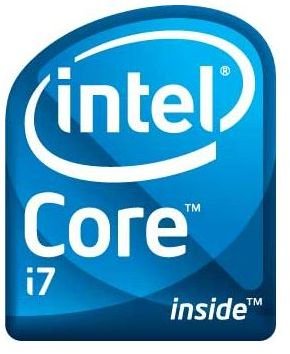Intel Nehalem Core i7 Processor Performance when Gaming
We saw in the last article that there are solid overall benefits to the Core i7, and that applications that multithread well, like 3d rendering, large scale number crunching (such as medical or financial research), and video encoding saw a huge speed increase.
Interestingly, the benchmarks are also showing that applications that don’t multi-thread very well show some benefit clock for clock, but, most obviously in gaming, the higher clocked older chips still put up a good fight.
2, 4 or 8 Threads Don’t Matter If You Only Need One
Game developers have been slow to take advantage of all the cores AMD and Intel CPUs throw at them. Nowhere is this more obvious than in side-by-side-by-side comparisons of Duo Core 2s, Quad Core 2s, and Quad Core i7s, which, because of Simultaneous Multithreading or Hyperthreading, can process eight threads at once.
While the i7s blow the older chips out of the water when all the threads are in use, their relatively low clocks compared to Intels E8400 and E8600 Core 2 Duo leave the old chips in good stead in popular gaming benchmarks. The CPUs were included in excellent, comprehensive Core i7 performance tests by Hardware Canucks and Tech Report, respectively.
The E8400 came in less than 11% behind the far newer 920 and just over 12% behind the far more expensive QX9770 in average frames per second in Crysis, and that is, in Hardware Canucks own words: “by reducing resolution and quality settings… to showcase the multi-core advantage.” Even at these Medium Settings, no anti aliasing, and a paltry 800 x 600 resolution, the 965XE only pulled ahead of the far cheaper and older E8400 by 17.25%. Tech Report used Crysis Warhead at a still low but more realistic 1024 x 768 resolution and Mainstream settings. The E8600 actually outperformed the 920 by 15.5% and was less than 11% behind the 965XE.
Both reviews included Half Life 2 Episode 2. In this game, the E8400 came in between the 920 and 940, while the E8600 pulled ahead of the 940 and almost caught the 965XE.
A Big Increase, But Not Across the Board
What we have seen in this and the preceding article is somewhat contradictory, but those are the facts. Many professional and productivity apps will get a big boost from a Core i7 because they can take advantage of the increased inter-core efficiency and the extra threads HT offers. Gamers, on the other hand, will see little if any benefit from going to the new architecture for the time being. The writing is on the wall though, and not only will the Core CPUs get higher clocks down the road, but games will make better and better use of all those threads.
Obviously that makes for a complicated buying decision, and there is still something else we need to discuss before we can get into recommendations: There are some complicated issues that arise when matching memory to the Core i7, what with the memory controller being on the CPU itself.
This post is part of the series: Core i7 and X58: Nehalem and Tylersburg Hit the Streets
Intel’s new microarchitecture has been talked about for a long time. The time has come to really see what it is all about, how much better it is, who should get it, and where to it.
- Intel’s New Desktop CPUs: What You Need to Know about these Processors
- Features of the New Nehalems: What is Jammed Into a Core i7? – Scalability and Bandwidth
- Intel Core i7 (Nehalem Bloomsfield) Features: A New Cache Design and Translation Lookaside Buffer (TLB)
- X58 Tylersburg: Big Changes to Motherboards Are Coming
- Which Motherboard for a Shiny, New, Core i7?
- X58 Based Motherboards for Your New Core i7: Gigabyte and MSI
- Wrapping Up Our Look at the First Crop of X58 Motherboards
- How Fast is Core i7?
- Games Not Multithreaded Enough for Core i7 Yet
- Remember to Budget for Memory: Triple Channel DDR3 Kits
- Who Needs a Core i7?
- Core i7 for Professional Applications: Graphics, Audio/Video Editing, or Research
- Core i7 965XE Still Fastest, but Not by Much When it Comes to Gaming
